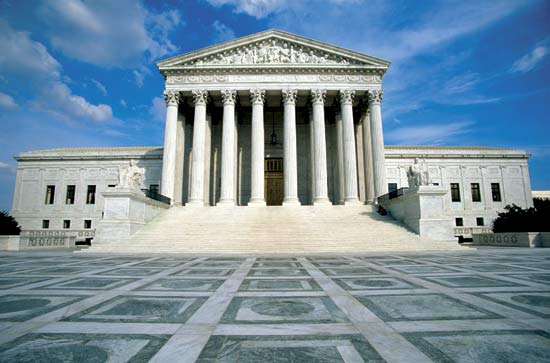
Holt v. Hobbs, a recent unanimous decision by the U.S. Supreme Court protecting a Muslim prisoner’s right to wear a half-inch beard, has important implications for Native American inmates seeking accommodation of their religious practices. In Holt, the Court held that Arkansas violated the Religious Land Use and Institutionalized Persons Act (RLUIPA) where its grooming policy did not allow beards and it refused to grant a religious exemption to an inmate whose Muslim religion required him to wear a beard. Shortly before the Court granted review in Holt, a group of Native American inmates filed a petition in Knight v. Thompson, asking the Court to review a case where prison officials in Alabama refused to grant a religious exemption from their restrictive grooming policy to allow Native Americans to wear long hair consistent with their Native religious beliefs. The Native American Rights Fund, representing the National Congress of American Indians and Huy filed “friend of the Court” briefs supporting the prisoners in both Holt and Knight. The Court has held the Knight petition since May 2014 and now, with its decision in Holt, has rescheduled consideration of the petition for its January 23, 2015, conference.
Like Mr. Holt, the Native American prisoners in Knight seek relief under RLUIPA, which requires that a substantial burden on an inmate’s religious exercise be the least restrictive means of furthering a compelling government interest. This standard, referred to as “strict scrutiny,” is the most stringent legal standard applied to laws and government rules. A lack of consistent application of this rigorous standard by the lower federal courts has allowed some state prison systems to unduly restrict religious practices of Native American inmates.
Since the Nebraska prison system became the first in the U.S. to accommodate sweat lodge in 1972, many others have gradually accommodated a variety of religious practices unique to Native Americans, including sweat lodge, tobacco use and long hair. Now, 80% of U.S. prison systems allow Native Americans to wear long hair, either through blanket policies or special religious exemptions. By and large, prison officials have found ways to mitigate the minimal risks associated with these practices and have observed numerous benefits to Native inmate behavior and rehabilitation as a result.
However, a handful of state prison systems stubbornly refuse to accommodate certain facets of Native religion, such as long hair at issue in Knight. Those prison officials have hidden behind safety, security and hygiene concerns to frustrate sincere religious beliefs and practices. Yet, these same prison officials openly admit that they did not investigate, or even consider, the successful accommodation measures taken by the 80% of prison systems allowing long hair, or exemptions for Native American inmates. Rather than apply RLUIPA’s strict scrutiny to the state’s arguments and ask, “Why not Alabama?” the lower courts in Knight deemed the policies of other jurisdictions simply irrelevant to the operation of Alabama prisons and accorded “due deference” to the uninformed opinions and unsubstantiated claims of prison officials.
Holt holds that this approach is wrong. Much like Knight, the Arkansas prison officials in Holt feared safety and security issues and ignored the successful measures taken by the vast majority of prison systems to safely accommodate religious beards. The Holt opinion makes clear that these successful, widespread accommodations are indeed relevant and indicate that Arkansas was not utilizing the “least restrictive means.” Additionally, the Supreme Court emphasized that judges cannot simply defer to the opinions of prison officials as a means of practicing “unquestioning acceptance,” thereby abdicating judicial responsibility to apply RLUIPA’s very rigorous standard. Courts must demand persuasive proof that denial of an exemption to a specific person is the least restrictive means of furthering compelling penological interests. Like the prison officials in Holt, the officials in Knight failed to meet this standard, and the court applied an unquestioning acceptance of their opinions. It is an error that has plagued the cases of several Native American inmates through several decades of litigation, and we believe that Holt provides the clarity necessary to remedy this persistent issue.
The Holt opinion changes a fundamental aspect of how certain prison systems deal with Native Americans and their religious practices. For those Natives who reside in the darkest corners of U.S. penal systems, it is no longer the rule that they cannot engage in their traditional religious practices merely because their jailors say so. Courts will demand more, just as Congress intended when it enacted RLUIPA.
For more information on the religious practices of Native American inmates, please see the article, Walking the Red Road in the Iron House.
More blog posts

